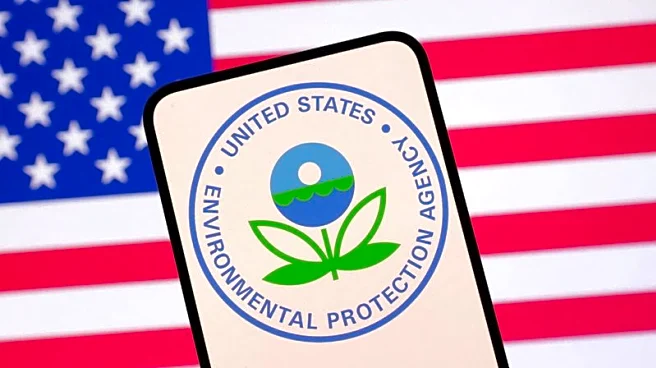What's Happening?
The ongoing debate regarding the compatibility of the Basel Convention on hazardous waste and the Hong Kong International Convention on ship recycling has been addressed in a recent op-ed. The article clarifies that while economic and political tensions
exist, there is no legal conflict between the two conventions. The Basel Convention focuses on preventing hazardous waste dumping, while the Hong Kong Convention regulates ship recycling processes. Both can be applied concurrently without legal contradiction, as confirmed by international legal principles. The real challenge lies in the economic and institutional capacities of developing countries to meet the stringent requirements of the Basel Convention.
Why It's Important?
This clarification is significant for the global shipping and recycling industries, as it underscores the need for harmonized application of international treaties. Developing countries, which are major players in ship recycling, face economic and capacity challenges in complying with Basel's requirements. The op-ed suggests that the path forward involves strengthening the Hong Kong Convention to align with Basel's environmental safeguards. This could facilitate a more balanced approach, allowing for economic viability while maintaining environmental protection. The resolution of this issue could enhance global cooperation in maritime governance and environmental protection.
What's Next?
The article suggests that the shipping and recycling industries should focus on reforming the Hong Kong Convention to better align with Basel's standards. This would involve embedding due diligence and clarifying waste management responsibilities. Such reforms could enable countries to invoke Article 11 of the Basel Convention, allowing for alternative arrangements that provide equivalent environmental protection. The industry faces a policy challenge rather than a legal one, and addressing this could lead to improved global cooperation and environmental outcomes.
Beyond the Headlines
The deeper implications of this issue highlight the need for capacity building in developing countries to meet international environmental standards. The economic disparity between developed and developing nations in implementing these conventions points to a broader issue of global inequality in environmental governance. Addressing these challenges could lead to more equitable and sustainable practices in the global shipping and recycling industries.
















